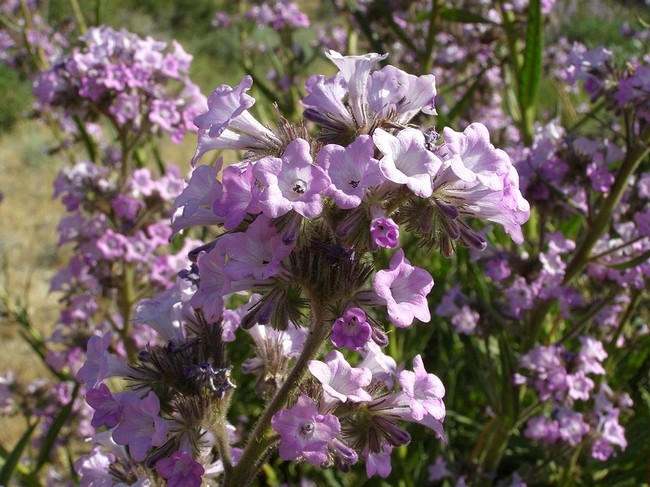
A member of the forget-me-not family (Boraginaceae), the poodle-dog bush, Terricula parryi, is a subshrub (with flexible, slightly woody stems) commonly found in disturbed areas, but rarely seen under undisturbed conditions. It can grow almost 10 feet tall and has purple bell-shaped flowers. It grows in recently burned areas of several vegetation types including forest, oak woodland, chaparral, and even riparian areas. However, it is a relatively short-lived and will decrease in numbers two to five years after the fires as other native shrubs and trees recover.
Contact with this plant can cause severe skin irritation with swelling, itching and raised blisters similar to those caused by poison oak. It’s best to avoid it, but if you need to be in infested areas make sure to wear long pants and sleeves and to wash clothes and gear soon after contact. Rinse skin with cool water as soon as possible. It can take from 12 to 36 hours for the rash to appear, and symptoms can persist for up to two weeks. If symptoms do appear, cool compresses, calamine lotion or over-the-counter hydrocortisone creams may provide some relief. Fluid from the blisters will not spread the rash, but it’s best to refrain from scratching if possible, as open sores can be prone to other skin infections.
This plant is now extremely common in the Station Fire burn area in Angeles National Forest and in other Southern California wildlands that have had recent fires. It’s another good reason to respect all trail and road closures. For more information about the Station Fire closure areas and recovery, visit http://www.fs.usda.gov/angeles.
Attached Images:
